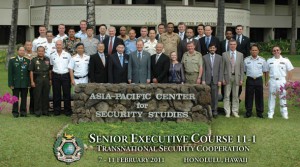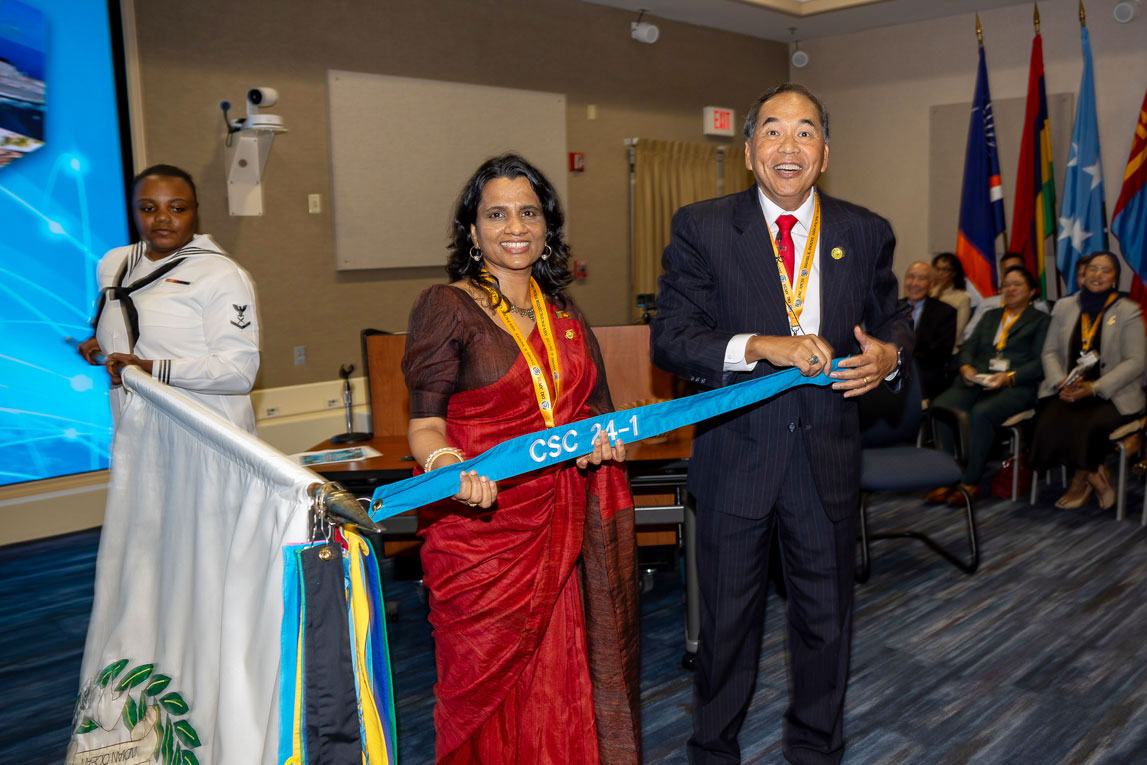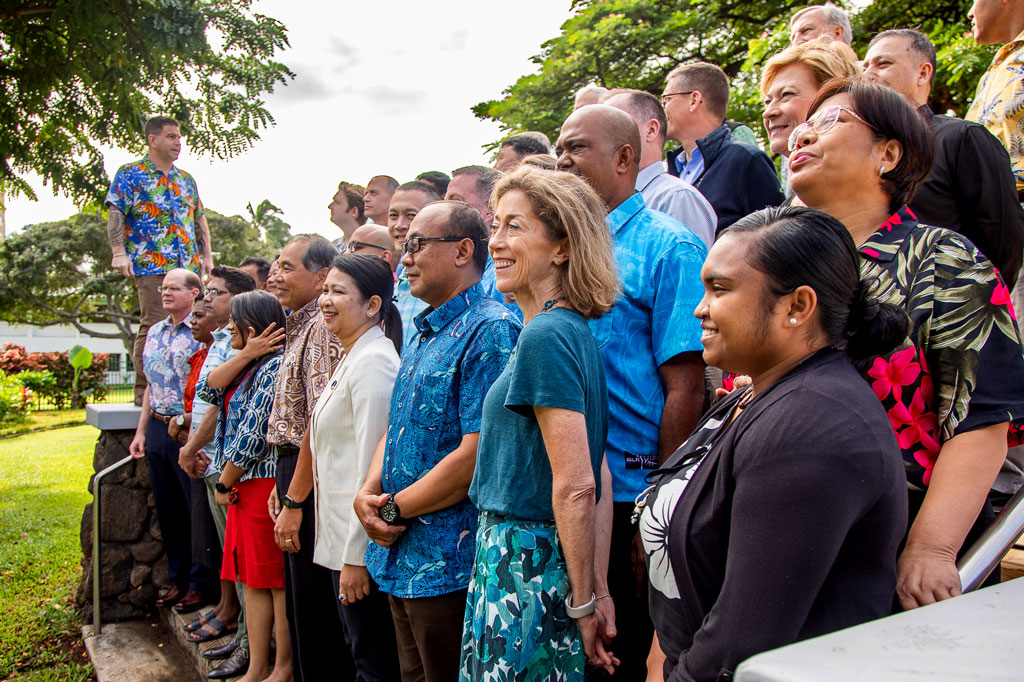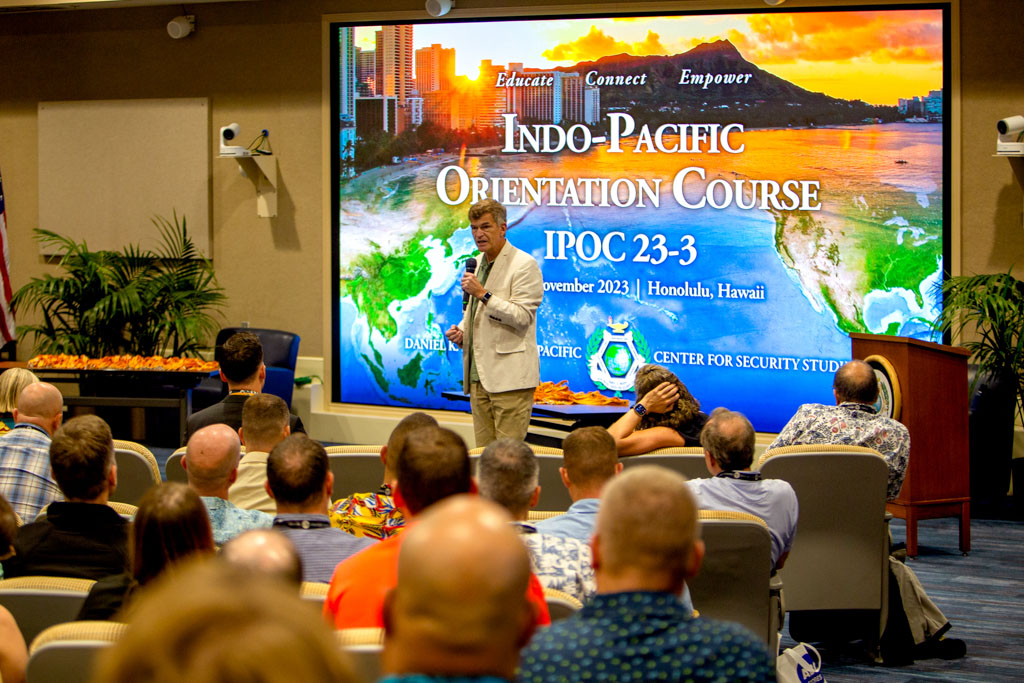 Twenty-five Fellows from 22 countries in the Asia-Pacific region completed the Transnational Security Cooperation Course (TSC11-1) Friday, Feb. 11, 2011.
Twenty-five Fellows from 22 countries in the Asia-Pacific region completed the Transnational Security Cooperation Course (TSC11-1) Friday, Feb. 11, 2011.
They include military and civilian leaders from Afghanistan, ASEAN, Australia, Bangladesh, Cambodia, Canada, China, France, Indonesia, Japan, Malaysia, Mongolia, Nepal, New Zealand, Pakistan, Philippines, Republic of Korea, Russia, Sri Lanka, Taiwan, Thailand, Ukraine, the United States, and Vietnam.
The course is an intensive program for current and future senior regional influencers/leaders; military officers at the one- to four-star level, as well as their civilian equivalents from the Asia-Pacific Region. Curriculum emphasizes the impact of current and future change in the region, as impacted by regional and global security threats. Course includes guest speakers, interactive seminar workshop scenarios addressing complicated transnational threats, and discussions with Senior U.S. Pacific Command officials, all intended to share perspectives and further identify cooperative approaches to transnational security issues of common concern.
The Asia-Pacific Center for Security Studies is a Department of Defense academic institute that addresses regional and global security issues. Military and civilian representatives of the U.S. and Asia-Pacific nations participate in our comprehensive program of executive education, professional exchanges and outreach events, both in Hawaii and throughout the Asia-Pacific region. APCSS’ mission is to educate, connect, and empower security practitioners to advance Asia-Pacific security. APCSS also enhances regional security through the creation of collaborative communities of interest among military and civilian officials throughout the region, and examines fundamental causes of relevant security challenges and the most effective means to counter them.
Since opening in 1995, the Asia-Pacific Center for Security Studies has had representatives from more than 90 countries attend courses at the Center.









Leave A Comment